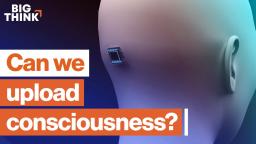human body
Clinical trials at the Feinstein Institutes for Medical Research focus on stabilizing cognitive loss and alleviating the psychotic symptoms that change our loved ones.
How much of this can be linked to genetics?
Let noted cognitive psychologist and linguist Steven Pinker introduce you to psychology.
Could we have predicted COVID-19 through social media trends?
Scientists regenerate damaged spinal cord nerve fibers with designer protein, helping paralyzed mice walk again.
Nutrisystem is a smarter weight-loss program that users enjoy.
Researchers discover that cancer cells go into hibernation to avoid chemotherapy effects.
University of Tokyo scientists observe predicted quantum biochemical effects on cells.
Previous research suggesting it’s all about prolactin may be missing the mark.
Some volunteers performed above chance. They weren’t the psychics.
What lies in store for humanity? Theoretical physicist Michio Kaku explains how different life will be for your descendants—and maybe your future self, if the timing works out.
▸
15 min
—
with
Scientists find that an RNA-DNA mix may have created the first life on our planet.
New anthropological research suggests our ancestors enjoyed long slumbers.
More evidence that we’re drowning in microplastic particles.
Jonathan Berman wants us to have better dialogues.
Other cultures can differ greatly from your own, but there are commonalties in the way we express emotions.
Research finds that our sense of self can be manipulated by certain smells and sounds.
Is the quest to upload human consciousness and ditch our meat puppets the future—or is it fool’s gold?
▸
14 min
—
with
The vaccine just passed its first clinical trials, but it has a long way to go.
There is a neurological link between serotonin levels and the brain’s ability to control impulses and patience levels.
Mice will even run on a wheel in nature. Pheromones help inspire that behavior.
The Google-owned company developed a system that can reliably predict the 3D shapes of proteins.
These tiny fish are helping scientists understand how the human brain processes sound.
Researchers from Israel reversed two key processes involved in aging.
A new study found similarities between the human brain and the cosmic network of galaxies.
Heard about the phenomenon of FNE, or ‘first night effect’?
The compound found in “magic mushrooms” has significant and fast-acting impact on the brains of rats.





























